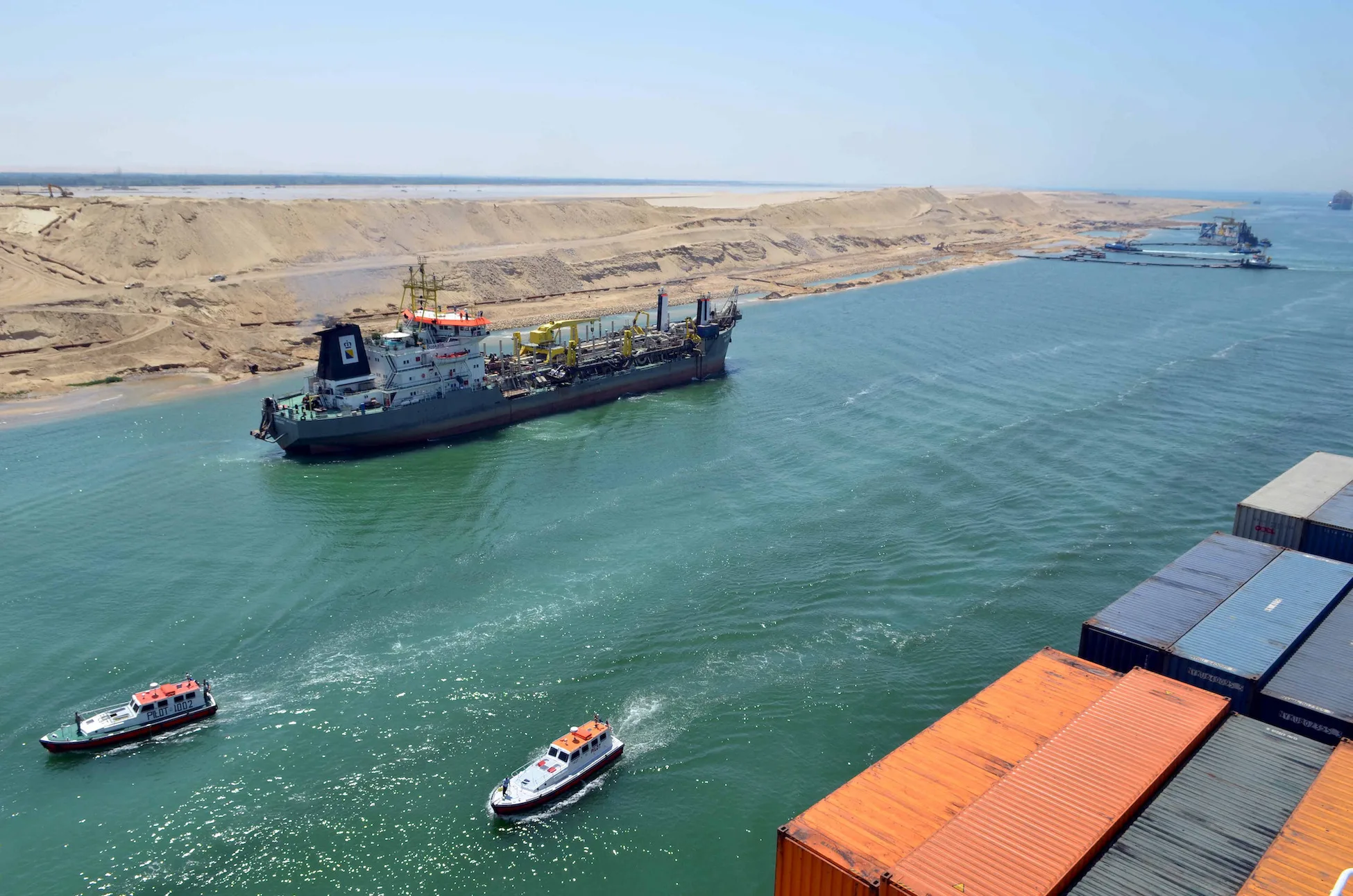Five major global shipping and oil corporations have declared a suspension of operations in the Red Sea and Suez Canal due to the Houthi attacks in response to the Israeli war in Gaza, posing a significant impact on maritime and oil transport.
About 15% of the world’s shipping traffic moves through the Red Sea en route to the Suez Canal, which is the shortest shipping route between Europe and Asia.
Maersk said that as of December 18, the company had about 20 ships that had temporarily stopped transiting. Half of these ships were waiting in the eastern Gulf of Aden, while the rest were parked south of Suez in the Red Sea or north of Suez in the White Sea, according to Forbes Middle East. The company decided to reroute these ships via the Cape of Good Hope around Africa for safety reasons, affecting global trade. This decision was also taken by many international shipping companies such as Hapag Lloyd and MSC, as well as major oil companies like BP and the oil tanker Frontline.
On Monday, the United States announced a multinational security initiative that includes 10 countries with a key mission of countering Houthi missile and drone attacks on ships crossing the Red Sea. This coalition involves France, the UK, Canada, Spain, Bahrain, Netherlands, Norway, Italy, and Seychelles along with the US.
“Countries that seek to uphold the foundational principle of freedom of navigation must come together to tackle the challenge posed by this non-state actor,” US Defense Secretary Lloyd Austin stated on Monday.
Rabab Raafat Boulos, Maersk’s head of infrastructure, emphasized the urgent need for a multinational operation, as announced by the United States, to safeguard commerce in the Red Sea. Boulos stated that the swift establishment of this operation is crucial to mitigate the negative repercussions on global shipping, highlighting the potential adverse impact on global trade.
The re-routing adds cost and time to vessel journeys. Oil prices and war risk insurance premiums have spiked as a result, according to Reuters.
“Attacks by Yemen’s Houthi militants on ships in the Red Sea are disrupting maritime trade through the Suez Canal, with some vessels re-routing to a much longer East-West route via the southern tip of Africa,” the report added.
The Suez Canal is a key source of US dollars and revenues for Egypt.
In November, Egypt’s Suez Canal achieved a growth of 20.3% in revenue, reaching $854.7 million, compared to $710.3 million in November 2022, showing a difference of $144.4 million.
Meanwhile, Egypt’s Suez Canal Economic Zone (SCZone) revenues recorded an all-time high of over EGP 6 billion in FY2022/2023, which ended in June 2023, according to the latest data the zone released.
It is worth noting that the Egyptian government announced in July a plan targeting collecting $191 billion to tackle the severe US dollar shortage crunch the country has been suffering. This plan mainly eyes merchandise exports, Suez Canal, and Maritime Services as key sources of the targeted US dollar collection. The attacks on ships in the Red Sea could impact Egypt’s struggling economy to move forward on this plan.







